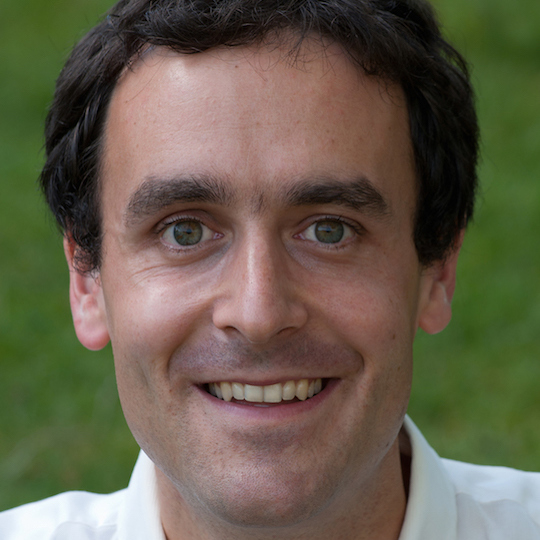Bachelor (before winter semester 2024/25)
The Bachelor of Science degree programme in Physics at the University of Bayreuth is close to research and at the same time carrer-oriented. It provides a broad general education in Physics and leads to a Bachelor of Science degree (B.Sc.) in six semesters. The degree programme regularly achieves top positions in the Germany-wide CHE ranking. Among other things, the University of Bayreuth received 4.6 out of 5 stars in the "General study situation" category in the 2024 student survey, the best rating of all physics bachelor's degree programmes in Germany. To expand your solid fundamental education in physics, you can choose from one of the five specialisation areas listed below.
In addition, compulsory elective courses provide insights into other disciplines and enable the deepening of individual areas of physics - depending on personal inclinations and interests. The Bachelor of Science is a first professional qualification and gives access to research-oriented Master's and doctoral programs, in particular to the Master's program in Physics at the University of Bayreuth.
- Focus on general physicsHide
-
With the focus on general physics your studies in the core subjects of physics will be deepened. You have the opportunity to get acquainted with special fields of physics, and you can set your own priorities.
The Elective Area of Physical Direction allows you to deepen interesting physical topics. At the moment you can chose from biophysics, measuring methods, modern optics, microcontrollers and electronics, computation, crystallography and computer simulation of many particle systems.
The elective area of nonphysical direction allows you to broaden your knowledge individually. Here you can choose from a long list of lectures ranging from neighboring natural sciences to mathematics, computer science and engineering to business administration and patent law. - Focus on biological physicsHide
-
The focus Biological Physics is aimed at students with a special interest in the physical basis of biological processes. Many key processes of living nature, from dynamic structure formation in individual cells to the organization of entire organisms, can not be understood without contributions from physics.
Here are the elective areas partly predefined with basic lectures on biophysics, biochemistry, bioinformatics and genetics. The laboratories include special biophysical experiments. - Focus technical physicsHide
-
In the focus Technical Physics you will be familiarized with practice-relevant physical techniques. In addition, you will acquire basic knowledge of business administration and engineering as well as patent law.
- Focus on environmental physicsHide
-
WIth the focus Environmental Physics, you will learn about the physical processes that determine the processes in our environment. With the help of physical laws you quantitatively describe processes in the atmosphere, the hydrosphere and in the soil. Here you can choose between the specialization directions Ecological Modeling (see figure), Meteorology & Soil Physics, and Hydrology.
- Focus on physics and philosophyHide
-
WIth the focus on Physics and Philosophy, you will receive a solid education in physics and will also learn the basics of philosophical thinking. In doing so you familiarize yourself with logic, reasoning and scientific theory.
The decision for one of the foci usually takes place before the third semester, but is still possible later. The beginning of studies for first-year students is in the winter semester. Ambitious students can already take part in Master's courses during their Bachelor's degree in Bayreuth and thus abbreviate their subsequent master's program.
Elective subject in physics
Here you can choose from the following modules
- Biophysics AHide
-
- Structure and function of DNA and proteins
- Transport mechanisms in living cells
- Mechanical properties of cells
- Physics of nerve cells
Biophysics A is an integral part of the focus Biophysics and therefore can in this case not be chosen as an additional elective subject.
- Technical Physics A: Measurement MethodsHide
-
- Data analysis and measurement errors
- important statistical distributions
- Measuring method based on optical, electrical and other methods
- Noise and Noise Reduction Procedures
Technical Physics A is an integral part of the focus on Technical Physics and therefore can in this case not be chosen as an additional elective subject.
- Data analysis and measurement errors
- Modern OpticsHide
-
- Wave optics
- Gaussian rays
- Fourier optics
- Polarization
- Quantum optics / photon optics
- Examples of integrated optics / fiber optics, negative refractive index and metamaterials, photonic crystals, nano-optics, optical components, non-linear optics
- Wave optics
- Microcontroller and electronicsHide
-
- Basics of computer-aided data acquisition
- Programming a microcontroller
- Construction of a microcontroller system
- Elementary algorithms of digital signal processing
- ComputingHide
-
- General principles of computer simulations in physics
- Numerical basics: machine accuracy, systems of equations, integration
- Partial differential equations
- Nonlinear optimization
- Parallelization
- General principles of computer simulations in physics
- CrystallographyHide
-
- Symmetry of crystalline solids
- Symmetry of physical properties of crystalline solids
- Basics of X-ray diffraction
- Modern methods for crystal structure determination
- Computer simulation of many particle systemsHide
-
- Microscopic many particle models
- Physical observables
- Development of simulation codes
- Numerically calculated physical quantities
- Visualization of numerical properties
- Microscopic many particle models
- Advanced Physical ComputingHide
-
- Advanced calculation methods
- Application of higher analytical and symbolic solution methods
- Computer algebra systems
- Visualization of results
- Advanced calculation methods
- Applied Theoretical PhysicsHide
-
- Learning modern theoretical methods on the basis of real problems
- Divided into four projects on changing current topics
- Development, implementation and analysis of small simulation projects and/or analytical calculations
Elective subjects of nonphysical direction
Here you can choose modules from the following subjects
- BiologyHide
-
- Biochemistry for Physicists 1
- Biochemistry for physicists 2
- Bioinformatics
- Genetics
- EngineeringHide
-
- Design and manufacturing for physicists
- Material sciences
- Introduction to materials science for physicists
- Introduction to the design and manufacturing for physicists
- Fluid mechanics
- Basics of mechatronics
- Machine tools
- LawHide
-
- Patent law for physicists
- Patent law for physicists
- Business and EconomicsHide
-
- Introduction to general business administration for physicists
- Introduction to economics
- Statistical Methods I
- Statistical Methods II
- Microeconomics I
- Microeconomics II
- European Integration
- Introduction to general business administration for physicists
- Earth SciencesHide
-
- Geophysics
- Geodynamics
- Numerical Methods in Geophysics
- Geophysics
- Computer ScienceHide
-
- Concepts of programming
- Programming in Java
- Computer architecture and computer networks
- Algorithms and data structures
- Multimedia Systems I
- Artificial intelligence
- Concepts of programming
- MathematicsHide
-
- Mathematics on computer
- Complex Analysis
- Mathematics on computer
- SociologyHide
-
- Introduction to Sociology
- Introduction to Sociology
Further details can be found in the module handbook. Current changes are announced in the elearning course "Aktuelles im Bachelorstudiengang Physik".
Study counseling
contact: bachelor.physik@uni-bayreuth.de

Prof. Dr. Markus Lippitz
Program advisor and head of the board of examiners
Room: 3.0.04 (BGI)
Phone: +49 (0)921 / 55-3800
Email: markus.lippitz@uni-bayreuth.de

Prof. Dr. Stephan Gekle
Program advisor and member of the board of examiners
Room: 1.2.02.644 (NW II)
Phone: +49 (0)921 / 55-4462
Email: stephan.gekle@uni-bayreuth.de

Prof. Dr. Anna Köhler
Program advisor and member of the board of examiners
Room: 5.3.01.31 (NW I)
Phone: +49 (0)921 / 55-2600
Email: anna.koehler@uni-bayreuth.de

Dr. Christoph Reihl
Faculty advisor for teaching and learning
Service unit PULS
Room: 3.2.00.345 (building NW II)
Phone: +49 (0)921 / 55-3224
Email: puls.mpi@uni-bayreuth.de
| Characteristics of the program | |
|---|---|
| Degree | Bachelor of Science (B.Sc.) |
| Start | winter term |
| Enrollment (Germans and EU citizens) | April to October here |
| Enrollment (Non-EU-citizens) | 15. July (winter term) here |
| Admission requirements | general or subject-related higher education entrance qualification or professional qualification Language skills: German B2 |
| Admission restrictions | none |
| Duration | 6 semesters |
| Particularities | Part-time study possible |
| Language | German |
Further Information
- Information flyer on the Bachelor programme in Physics
- Curricula for the different foci
- Module handbook (as of 14/09/2023)
- Examination and study regulations
- Planning assistance for elective subjectes (until summer term 2025)
- Latest information about the Bachelor Study Programme Physics (eLearning)
- Regular dates of course lectures in physics
Further counseling services
For all pupils who are interested in studying physics, the German Physical Society offers free access to an Online Mathematics Bridges Course OMB+.








